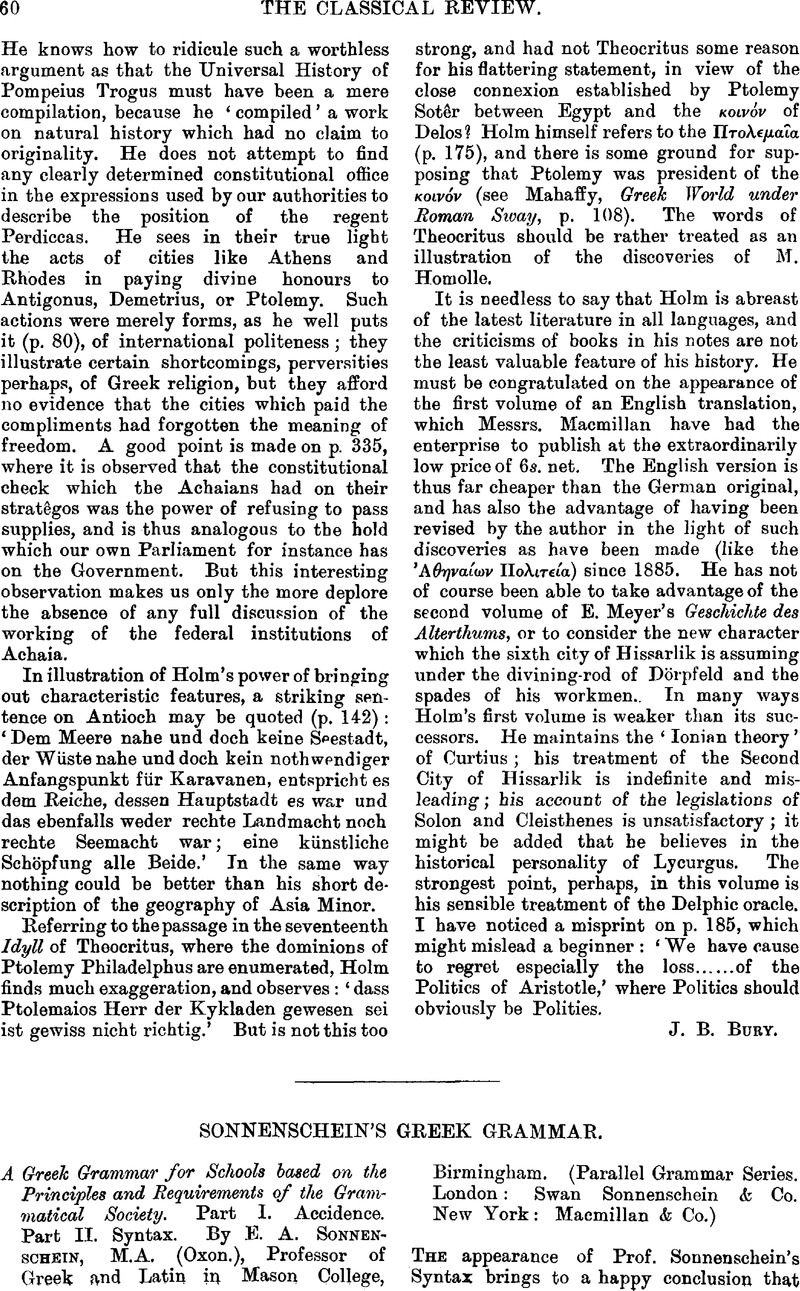No CrossRef data available.
Published online by Cambridge University Press: 27 October 2009

page 61 note 1 This is the corollary or practical application of a general principle which is also given and which, with the Editor's kind permission, I hope to discuss on some future occasion.
page 62 note 1 This idiom has not been overlooked as, I think, I have met it somewhere, though I cannot now recover the passage. It does not occur in the places referred to by the index as ‘Generic’
page 62 note 2 Mr. Marindin has been good enough to point out that the strictly limiting doctrine stated above as orthodox scarcely deserves that name. He refers, among older grammars, to an appendix to Madvig's Greek Syntax recording the occurrence of πρν with ind. after affirmative clauses. This use is there described as ‘comparatively rare and mostly confined to Tragedy and Thueyd’. He gives a further reference to Donaldson, who simply notes the use of the indicative after affirmatives and negatives. Hence, as Mr. Marindin suggests, the rigidly restrictive rule should be described rather as a new heresy than as old orthodoxy. Nevertheless Prof. Sonnenschein's version of the rule is very common in recent grammars and is constantly repeated by commentators. It is needless to add we are dealing exclusively with the Attic use of πρν.
page 63 note 1 Since writing the foregoing I have found this subject fully treated in Goodwin M. T. (cd. 1889) 627 sqq. The instances cited above are there given, save that from Thuc. v. 10, 3; also many others from Sturm. Goodwin lays down the important principle that ‘the infinitive is required’—even after negatives— ‘when πρν means simply before and not until.’ A scientific analysis of this verbal distinction would probably solve the complicated question of the use of πρν.
page 65 note 1 Theis word has different extension with different writers.
page 66 note 1 Demosthens' Rede fūr die Megalopoliten von Wilhelm Fox, S.J. (Freiburg-im-Breisgan), § 17, page 118.